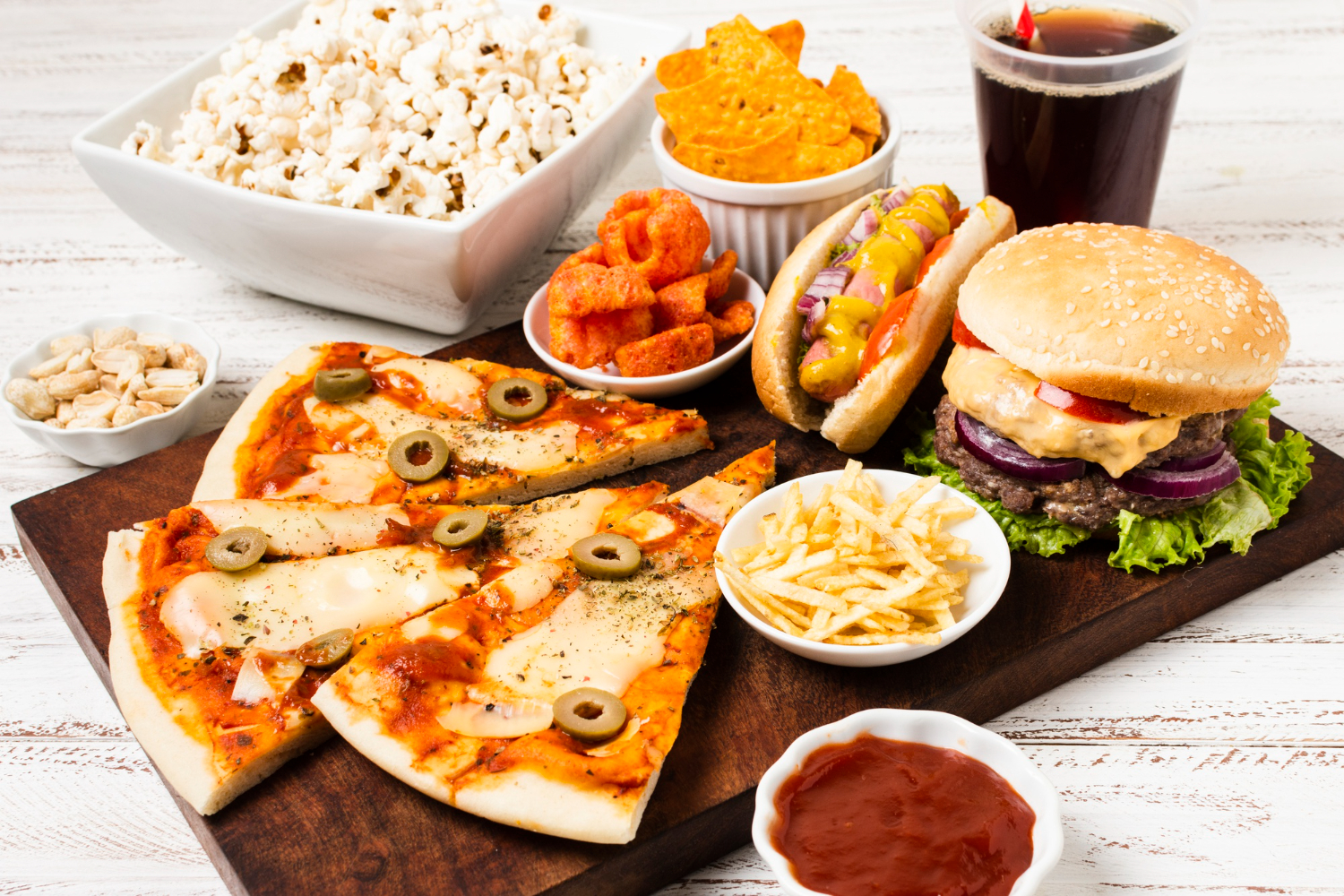Convenience vs Nutrition: The Processed Food Paradox
- In our fast-paced world, convenience often takes precedence over mindful eating.
- Processed foods have become a staple in many diets, but are we fully aware of the consequences?

Processed foods are foods that have been altered from their natural state through various manufacturing processes. These processes typically involve adding additives, preservatives, flavourings, or other chemicals, as well as methods such as refining, canning, freezing, or packaging. The main purpose of processing is to extend the shelf life, enhance taste, improve convenience, and increase profitability.
Processed foods can range from minimally processed items like pre-cut vegetables or roasted nuts to highly processed products such as frozen meals, sugary cereals, snacks, sodas, and fast food.
In our fast-paced world, convenience often takes precedence over mindful eating. Processed foods have become a staple in many diets, but are we fully aware of the consequences? While they offer quick solutions and tantalizing flavours, the drawbacks of excessive processed food consumption can’t be ignored. In this article, we delve into the disadvantages of relying heavily on processed foods and explore the importance of embracing a more wholesome approach to nourishment.
Table of Contents
Empty Calories and Nutritional Deficiencies
Feeding our bodies with nutrient-poor foods is like filling a gas tank with water. Processed foods are often stripped of essential vitamins, minerals, and fiber, leaving us susceptible to nutritional deficiencies and a host of health issues.
A Recipe for Chronic Diseases
The convenience of processed foods comes at a cost. Excessive consumption has been linked to an increased risk of chronic diseases such as obesity, type 2 diabetes, heart disease, and certain cancers. The high levels of unhealthy fats, added sugars, and artificial additives act as ticking time bombs for our well-being.
Obesity and Weight Gain
Processed foods, with their calorie-dense nature and lack of satiety, make it easy to overindulge. The result? Unwanted weight gain and an increased risk of obesity. Refined carbohydrates and added sugars found in processed foods wreak havoc on our blood sugar levels and can lead to insulin resistance.
Digestive Distress
Our digestive system thrives on fiber, but processed foods often fall short in this department. Insufficient fiber intake can result in constipation, irregular bowel movements, and a higher likelihood of gastrointestinal disorders.
Inflammation
Unhealthy trans fats, excessive omega-6 fatty acids, and pro-inflammatory additives found in processed foods can stoke the flames of inflammation within our bodies. This can contribute to chronic diseases and exacerbate conditions such as arthritis.
Mind and Mood
The Culinary Connection: Emerging evidence suggests that our dietary choices influence not only our physical health but also our mental well-being. A diet high in processed foods may increase the risk of mental health problems such as depression and anxiety. Nourishing our bodies with nutrient-rich whole foods can have a positive impact on our mental state.
Beyond Our Plates: Environmental Concerns
The consequences of processed foods extend beyond our personal health. Mass production, transportation, and packaging of these items contribute to environmental degradation and the emission of greenhouse gases. Embracing a more whole-food-based diet can help mitigate our environmental impact.
Conclusion
While processed food has found its way into our busy lives, it’s essential to recognize the potential drawbacks. Nutritional deficiencies, increased risks of chronic diseases, weight gain, digestive issues, inflammation, mental health concerns, and environmental impact are all compelling reasons to re-evaluate our reliance on these convenient but often unhealthy options. By prioritizing whole, unprocessed foods, we can nourish our bodies and minds while supporting a sustainable future. Let’s make informed choices and savour the benefits of a wholesome approach to eating.
Thanks for reading! We hope this helps you on your journey to becoming a fitter and healthier version of yourself. Don’t forget to follow @naijafitfam on Instagram for more helpful content.




















